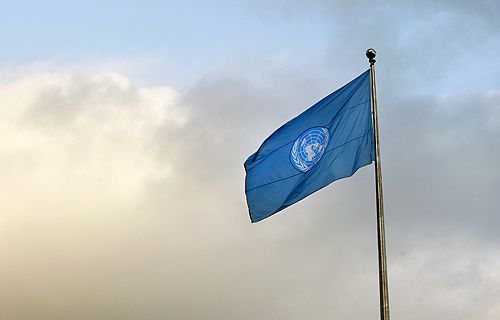Ahead of a report to the U.N. on an anti-torture agreement next week, the Holy See has emphasized its commitment against torture, and warned against the hearing being reduced to a “tool of ideological pressure.” “The Holy See also proposes important teaching with regard to matters of torture and cruel and inhuman treatment, which is of great importance for the diffusion of the principles inspiring the Convention and for its implementation,” said Fr. Federico Lombardi, head of the Holy See Press Office, May 2, referring to the U.N. Convention against Torture. He voiced hope that in the upcoming meeting, “a serene and objective dialogue may take place, pertinent to the text of the Conventions and their objectives.” “Otherwise, the Conventions may be distorted and the Committees risk losing authority and being reduced to tools of ideological pressure rather than a necessary stimulus toward the desired progress in promoting respect for human rights,” he said. Each of the 155 states which are parties to the U.N. Convention against Torture — including the U.S. — are obliged to report to the international organization's Committee against Torture every four years about its implementation. The Holy See, which signed the treaty in 2002, will submit its report May 5-6, along with the states of Cyprus, Lithuania, Guinea, Montenegro, Sierra Leone, Thailand, and Uruguay. The Holy See signed the convention on behalf of Vatican City State, “so its legal responsibility for implementation regards the territory and competences of Vatican City State,” Fr. Lombardi said. On May 5, the Holy See will present its report on the convention’s implementation, and receive comments and questions from the committee; the following day, the Holy See’s delegation will be answer the committee’s questions. The Committee Against Torture will then, on May 23, publish its findings on the Holy See as well as the seven other states, and the states will each be able to issue a response. The convention “relates principally to matters regarding criminal legislation, criminal procedure, the prison system, international relations in the legal domain,” Fr. Lombardi said, explaining that since the last Holy See report on the convention, it has adopted two laws to “ensure that the Vatican’s criminal law and criminal procedure legislation is in accordance with the Convention.” He went on to note that “not infrequently the Committees pose questions deriving from issues not strictly linked to the text of the Convention, but rather connected to it indirectly or based on an extensive interpretation.” Offering January’s hearing at the Committee on the Rights of the Child as an example of this, he said that “a contributory factor is often the pressure exercised over the Committees and public opinion by NGOs with a strong ideological character and orientation.” The January hearing became controversial when the U.N. committee turned from discussing children’s rights to a condemnation of Catholic teaching on homosexuality, contraception and abortion. Fr. Lombardi cautioned against efforts in the current discussion “to bring the issue of the sexual abuse of minors into the discussion on torture, a matter which relates instead to the Convention on the Rights of the Child.” “The extent to which this is instrumental and forced is clear to any unbiased observer,” he said. James Kelly, of the Solidarity Center for Law and Justice, told the Committee against Torture May 2 that the January hearing “exceeded its mandate and the rule of law to criticize a range of Catholic moral and social teachings … rather than limit its concluding observations and recommendations to specific matters relating to the Holy See's governance of the Vatican City State.” Ashley McGuire of Catholic Voices USA added that “it is a shame to see NGOs attacking the Church at the U.N., some trying to use this committee to advance an ideological agenda, so often because the Church will not change her moral positions.” Last month, the Center for Constitutional Rights — a U.S. legal group representing the Survivors Network of those Abused by Priests — issued a statement characterizing the Holy See’s regularly scheduled hearing as the Holy See having been “summoned” to report to the U.N. about sexual abuse and cover ups in the Church. This characterization has drawn criticism from those who argue that it is misleading, distorting the nature of the routine committee report and painting the Vatican and the Church in a bad light. Fr. Lombardi commented that “the experts who form the Committees are mostly committed with great determination and merit to the causes of the promotion of rights, and therefore tend to broaden the spaces for and forms of defence.” “However, this must necessarily be balanced with the correct rules for legal interpretation, so that the debate, in a pluralistic, multicultural and international world, may take place in a constructive fashion, favouring the growth of consensus in the international community for the effective protection of essential values for the dignity of the person.” He concluded his statement by again emphasizing “the Holy See’s strong commitment against any form of torture and other cruel, inhumane or degrading treatment or punishment.”

